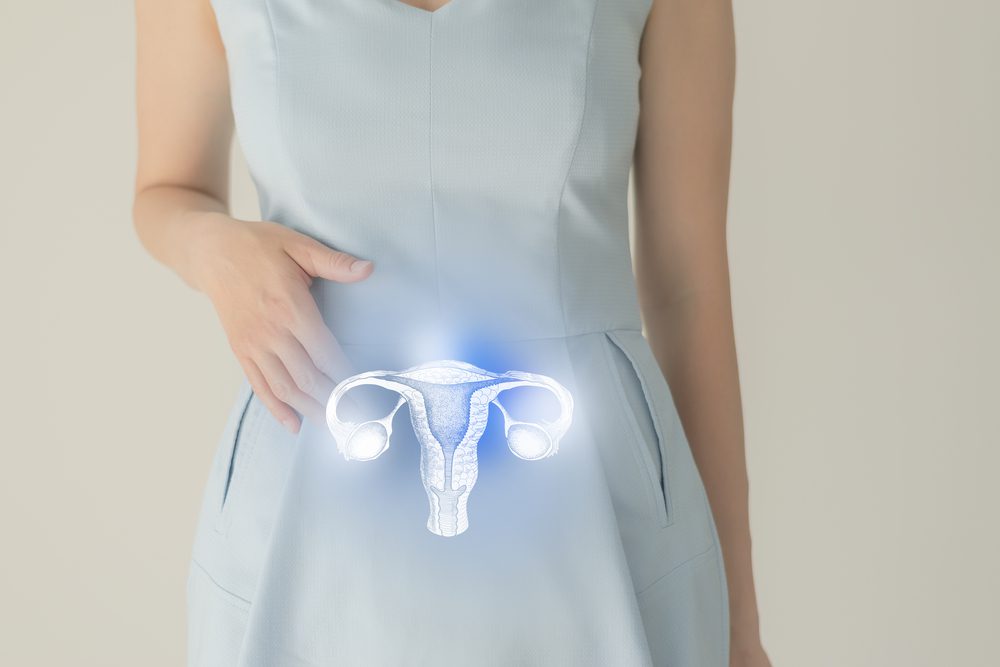Menopause is a stage of life that every person with ovaries and a uterus will deal with that can bring about uncomfortable symptoms. While there are traditional treatments for addressing the symptoms of menopause, some people do not respond well to these treatments, are not qualified candidates for these treatments, or wish to utilize a combination of traditional and holistic approaches for the best results. Acupuncture is a great supplemental tool for treating the uncomfortable symptoms of menopause. As it’s noninvasive and effective, more people who are wanting to reduce the discomfort of menopause seek acupuncture sessions for menopause now than ever before.
Menopause is a stage of life for people who are living with female reproductive anatomy in which periods end. This is due to a reduced amount of estrogen, a specific hormone that is responsible to regulate the menstruation process. Specifically, menopause is the 12-month timeframe after a person’s final menstruation. Before menopause, a person experiences a stage known as pre-menopause. During this stage and throughout menopause, a person can experience debilitating and uncomfortable symptoms such as hot flashes, changes in menstruation cycles, and more. While many people who menstruate may not experience any discomforting symptoms of menopause, others will experience mild to severe symptoms. For people who experience mild to severe symptoms of menopause, it can be helpful to find treatment to address these unwanted and life-altering symptoms such as hormone therapy or acupuncture.
If you’re unsure whether or not you’re experiencing menopause, there are some things that can help you pinpoint if menopause is present in your life. Some of the signs and symptoms of menopause can include:
Changes in Menstruation: If you’re noticing that your periods are changing, this may be due to menopause. Examples of changes in menstruation that are due to menopause can include having more frequent periods, experiencing heavy bleeding, spotting, longer-lasting periods, and more time in between periods (up to a year).
Hot Flashes: Hot flashes are some of the most common symptoms associated with menopause. They are episodes when a person experiences extreme bodily temperatures that can result in flushing, sweating, and redness of the skin. Heat flashes can be uncomfortable and happen a number of times a day, typically, lasting up to 10 minutes.
Sleep Issues: Another sign of menopause can be having trouble sleeping. This can include waking in the middle of sleep and not being able to get back to sleep, trouble falling asleep, and waking up earlier than you want to.
Incontinence: Incontinence is the loss of bladder control. It can happen during menopause as this is another symptom of experiencing this life episode. Typically, people going through menopause may lose bladder control while laughing, coughing, or sneezing.
Mood Swings: It’s common for people going through menopause to experience shifts in moods. This is believed to be due to the effects of lessening hormones like estrogen in the body. However, it can also be due to additional stress or depression as a result of going through this life change.
If you’re experiencing any of the symptoms listed above, it can be helpful to talk to your doctor about whether or not you’re experiencing menopause. This way, you can look forward to receiving help to manage symptoms through treatment such as acupuncture.
Many people who are living with debilitating symptoms of menopause may wish to seek help with managing symptoms. Research shows that acupuncture helps to reduce symptoms of menopause in people who are experiencing them. It’s believed that acupuncture works to help reduce symptoms of menopause by helping to restore and rebalance hormones that, when imbalanced, lead to menopausal symptoms. It can also help to reduce symptoms of stress and improve relaxation, which helps individuals going through menopause get better quality sleep.
Acupuncture is a great tool for helping manage symptoms of menopause because it is non-invasive. No sedation is required during treatment sessions and individuals can get back to their daily lives as soon as sessions conclude. Furthermore, acupuncture for menopause doesn’t pose high risks for side effects, so people who utilize this type of menopause treatment don’t have to worry about adverse reactions in between sessions.
Acupuncture sessions may look different from person to person as every person experiences menopause differently. At Acupuncture Zen, our approach to acupuncture sessions is individualized – completely unique to each individual’s needs and expectations for treatment results and experience. Find out more about what to expect during acupuncture sessions at our Delray Beach clinic on our website.
